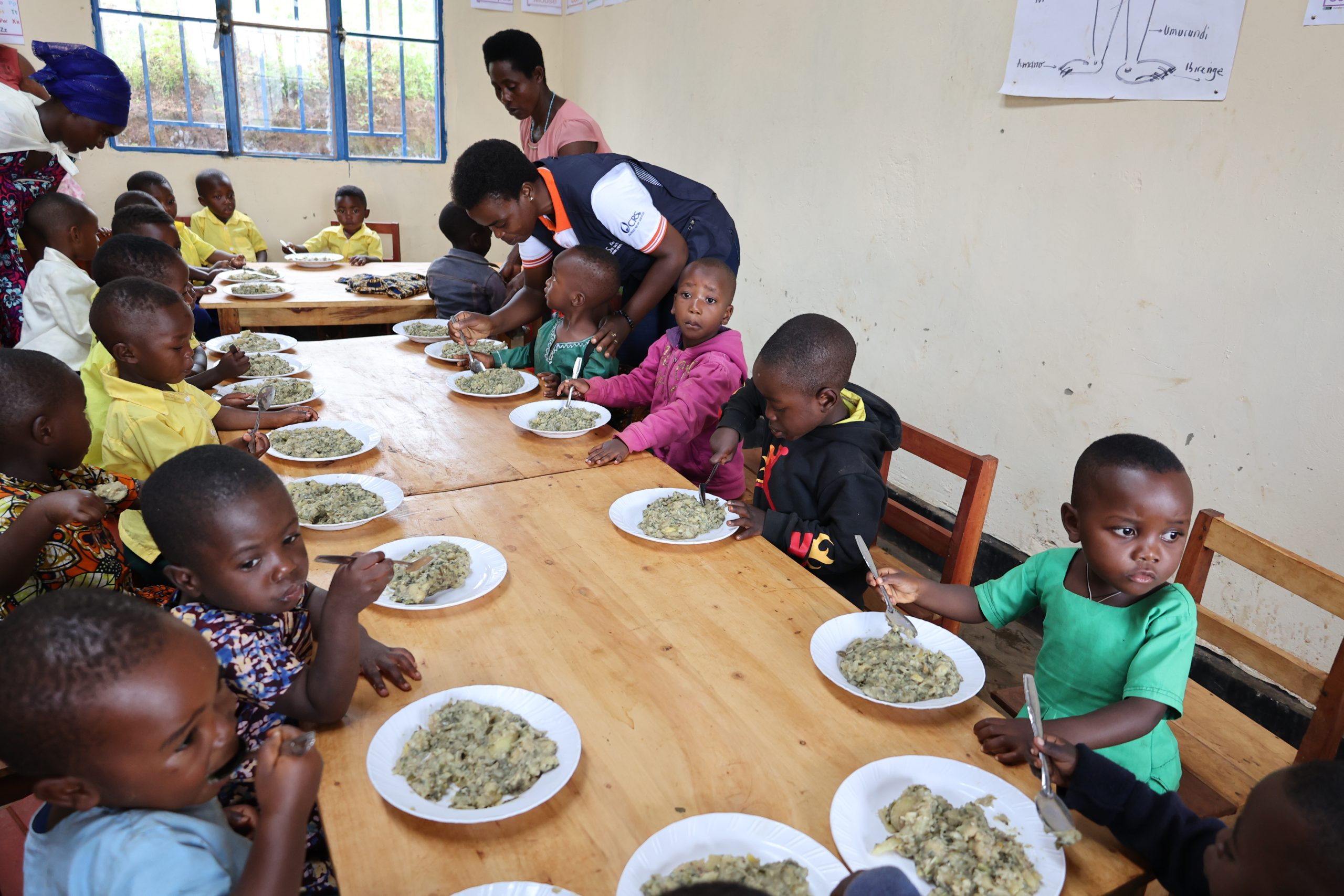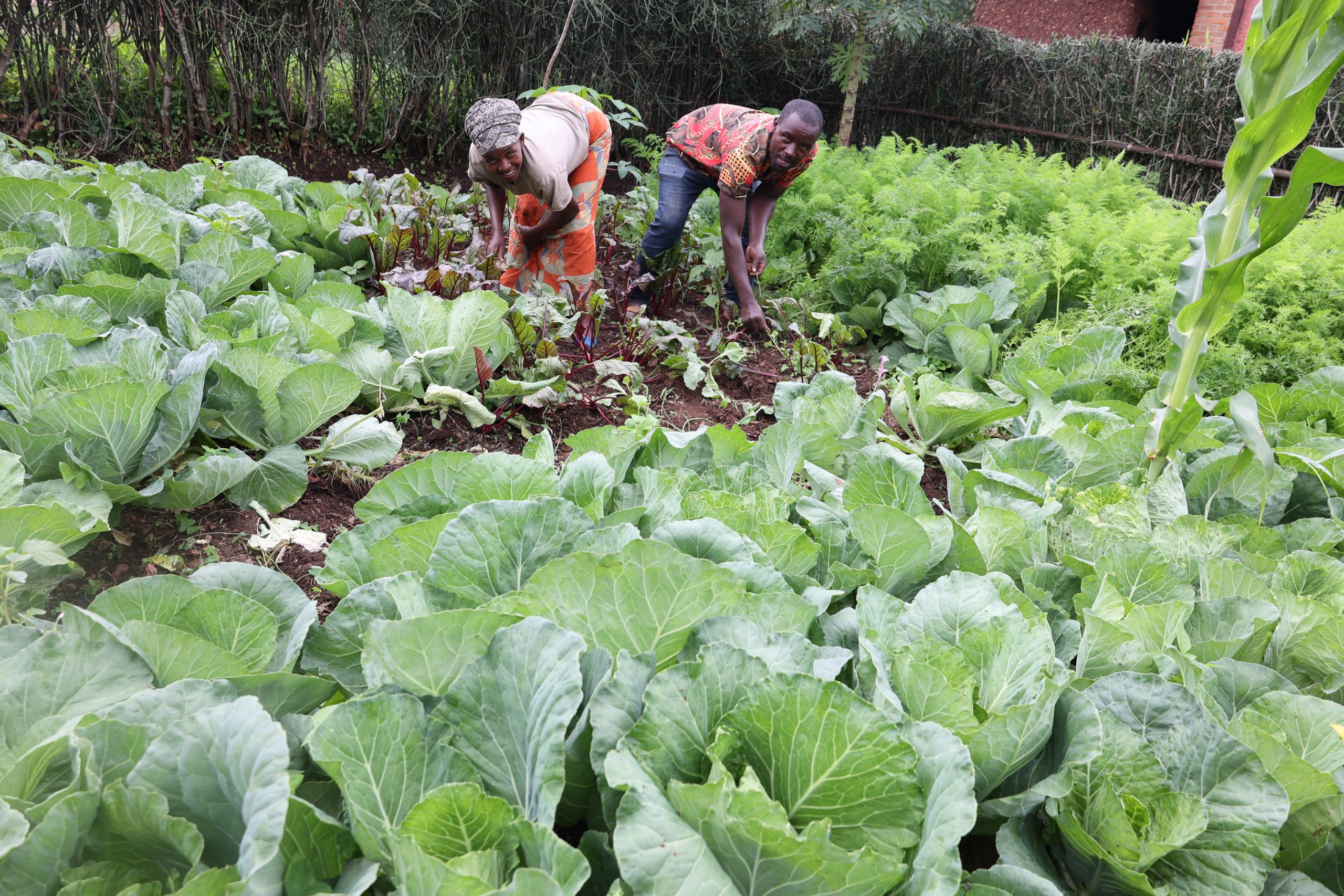
Children at the Early Childhood Center in Rwanda sharing a healthy meal as part of the kitchen demonstration session organised by our partner Catholic Relief Services.
To contribute to enhance the nutritional aspects of smallholder farmers in Rwanda, AID-I GLR has leveraged an existing nutritional program implemented by Catholic Relief Service (CRS), named as “USAID Gikuriro Kuri Bose”, using its community nutritional platforms known as Nurturing Care Hubs (NCHs). Participants, especially women, who attend balanced diet cooking demonstrations at the NCHs, now also learn how to produce crops used in the preparation of healthy meals. Indeed, through this partnership, up to 135 NCHs across all the districts of AID-I GLR intervention introduced demonstration plots for nutritional crops including vegetables, orange-fleshed sweet potatoes (OFSPs), and high-iron beans, and distributed small packs in collaboration with seed companies. These serve as models for attendees of cooking sessions, demonstrating how to replicate similar gardens at home for nutritious food for their families.

A farming couple, Ntiyamira Theogene and Uwimana Beata planted high-quality carrot and cabbage seeds provided by Holland Green Tech, a vegetable seed company in Rwanda.
“We have appreciated these vegetable varieties. We used to plant non-certified seeds that couldn’t yield as impressively as this. For example, with cabbages, we used to harvest less than 80 cabbages in this small plot. But with the improved seeds, the yield surpassed 100 cabbages. Additionally, the carrot yield doubled from 10 basins to 20 basins. We plan to buy more of these improved seeds in the next planting season, to plant them on a larger field to be able to fully feed our family while also setting aside a surplus for sale to meet financial challenges in our family,” said the couple.
Apart from exposure to improved seed and good agricultural practices for nutritional crops, the NCHs also serve as a platform to introduce fortified whole maize flour. Thus far, 156 NCHs have participated in testing and promoting this new product, reaching 6,405 children.




No Comments